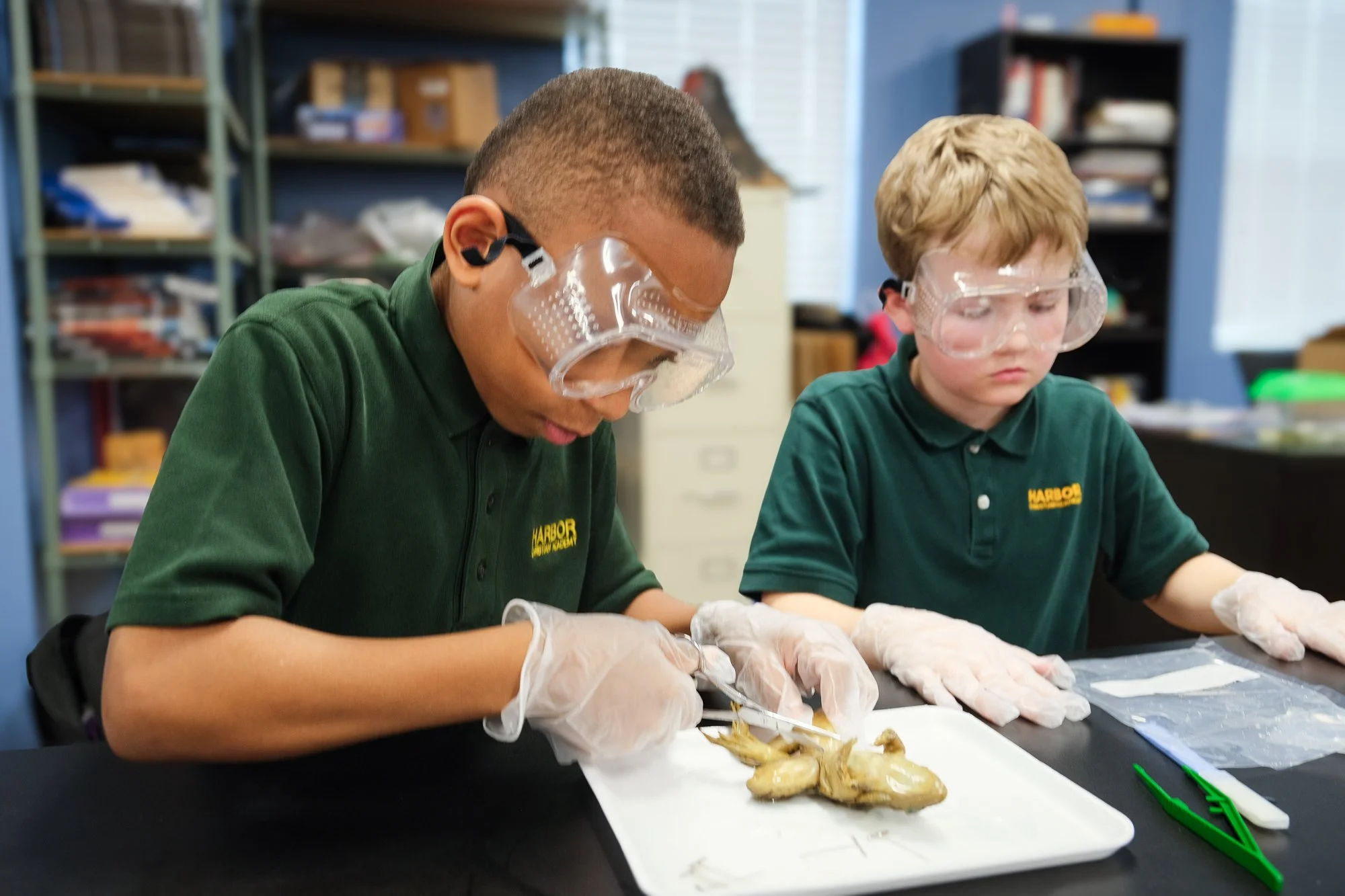Curriculum Overview
We are committed to guiding our students through a sequence of study towards a defined end—to glorify God and enjoy Him forever.
The Harbor curriculum is based on a classical philosophy of education, guided by a historical timeline that integrates all subjects and saturates students in a language-rich environment.
As a Christian school, we recognize that the end of man is to glorify God and enjoy Him forever, therefore our curriculum is designed to develop worshipers and members of the kingdom of Heaven.
As a classical school, we value time-tested methodologies and align our pedagogy with the traditional stages of learning that coincide with a child’s natural development. Our curriculum encourages students to go beyond knowledge and understanding in pursuit of wisdom and virtue.
As an urban school, we recognize that we are part of the story of God in a particular place and a particular time. Our curriculum is designed to unite a diverse student body around eternal truth and goodness as we rejoice in the beauty of our city and our community.
The Trivium
The Trivium (Latin for "three ways") applies a learning process where students gain knowledge first, then understanding, and finally, wisdom. This three-step process is evident in the unfolding of the classical Trivium, which divides learning into three stages: grammar, dialectic, and rhetoric. Grammar, like knowledge, encompasses the building blocks of information that must be learned or memorized for any given subject—the ABCs, if you will. Dialectic, like understanding, is the logical relationship between the information blocks mastered in Grammar. Then Rhetoric, like wisdom, is the goal. It is learning to apply Grammar and Dialectic in a beautiful, eloquent, and truthful fashion. We follow these three steps—grammar, dialectic (called 'logic' at HCA), and rhetoric—when learning any new subject. Although these three tools of learning can be applied throughout a lifetime, classical education aligns these steps with the natural developmental stages of children.
Grammar School
Kindergarten — 5th grade
In the early years, students gain knowledge through imitation, memorization, songs, and stories. We see foundations being laid as HCA students in Grammar School chant their history timelines, memorize math facts and practice grammar jingles. These formative experiences shape character and prepare students to someday stand in front of others and defend their beliefs with conviction and eloquence.
Logic School
6th — 8th grade
In the middle school years, students learn to analyze their accumulated knowledge and argue well. The study of formal logic enables students to test arguments for validity and truth while developing orderly thought. Through debates, discussions, and discourse, they learn to ask questions, spot inconsistencies, and think critically across all subjects. From reading classic literature to engaging in Socratic discussions, students learn to discern what is true, good, and beautiful.
Rhetoric School
9th grade
In their high school years, students enter the rhetoric stage which emphasizes eloquent and fruitful speech. In their final years of high school, students study formal rhetoric - the discipline of persuasive speech. The capstone project of their education at HCA is a senior thesis. Students will apply their knowledge, reason, and communication skills by researching a topic, building an original argument, and providing a verbal defense of their position.





